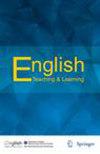Operationalising Pluriliteracies in a Lesson Planning Tool for Vocational CLIL Teachers
IF 1.1
Q2 EDUCATION & EDUCATIONAL RESEARCH
引用次数: 0
Abstract
Abstract Whilst researchers agree that the integration of content and language goals is the operative principle behind any successful CLIL programme, there is an ongoing debate over how we can best conceptualise this integration for practical use. A promising way of integrating content and language goals in CLIL teaching is foregrounding the subject/pluriliteracies skills relevant to the respective CLIL subjects, and using them as a guide to offer targeted language support and multimodal scaffolding measures. Yet the content teachers typically involved in CLIL programmes in Austria are seldom trained in subject literacy education or foreign language teaching methodology, which makes the task of translating a content and language integrated model into CLIL practice especially demanding. This becomes even more challenging at Austrian technical colleges, where CLIL programmes typically focus on highly specialised technical content subjects in which cognitive demand is high in terms of both content and language. To support teachers at technical colleges in implementing an integrated CLIL model, this project aims at developing a CLIL lesson planning tool that operationalises subject literacy for the context of technical colleges. Following a design-based research (DBR) approach, the tool is designed in collaboration with two novice CLIL teachers and tested in their respective subjects recycling technology and control engineering. Both the process and the outcome of this project offer new insights into CLIL lesson planning and vocational CLIL in general. The lesson planning tool itself holds the potential to improve CLIL practice in the often-neglected context of vocational CLIL, thus bridging the gap between theory and practice.在职业CLIL教师课程规划工具中运用多元素养
虽然研究人员同意内容和语言目标的整合是任何成功的CLIL课程背后的操作原则,但关于我们如何最好地将这种整合概念化以用于实际使用,仍存在争议。在CLIL教学中整合内容和语言目标的一种很有希望的方法是突出与CLIL各学科相关的学科/多元素养技能,并将其作为指导,提供有针对性的语言支持和多模态脚手架措施。然而,奥地利参与CLIL项目的内容教师通常很少接受过学科素养教育或外语教学方法的培训,这使得将内容和语言整合模式转化为CLIL实践的任务尤为艰巨。在奥地利的技术学院,这变得更具挑战性,因为CLIL课程通常侧重于高度专业化的技术内容科目,这些科目在内容和语言方面的认知需求都很高。为了支持技术学院的教师实施综合CLIL模式,本项目旨在开发一种CLIL课程规划工具,在技术学院的背景下实施学科素养。采用基于设计的研究(DBR)方法,该工具是与两位CLIL新手教师合作设计的,并在各自的学科回收技术和控制工程中进行了测试。这个项目的过程和结果都为CLIL课程规划和职业CLIL提供了新的见解。课程规划工具本身具有在经常被忽视的职业CLIL背景下改善CLIL实践的潜力,从而弥合理论与实践之间的差距。
本文章由计算机程序翻译,如有差异,请以英文原文为准。
求助全文
约1分钟内获得全文
求助全文
来源期刊

English Teaching and Learning
Multiple-
CiteScore
2.80
自引率
0.00%
发文量
26
期刊介绍:
English Teaching & Learning (ETL) is the first scholarly journal in Taiwan dedicated solely to research on the teaching and learning of English as a second or foreign language. It aims to publish quality papers that contribute to all aspects of the profession, with a particular preference for studies that seek to combine both theory and practice. The journal welcomes submissions on course design, teaching materials, teacher training, teaching methods, language assessment, bilingual education, as well as from the fields of sociolinguistics, psycholinguistics, and other related areas.
 求助内容:
求助内容: 应助结果提醒方式:
应助结果提醒方式:


